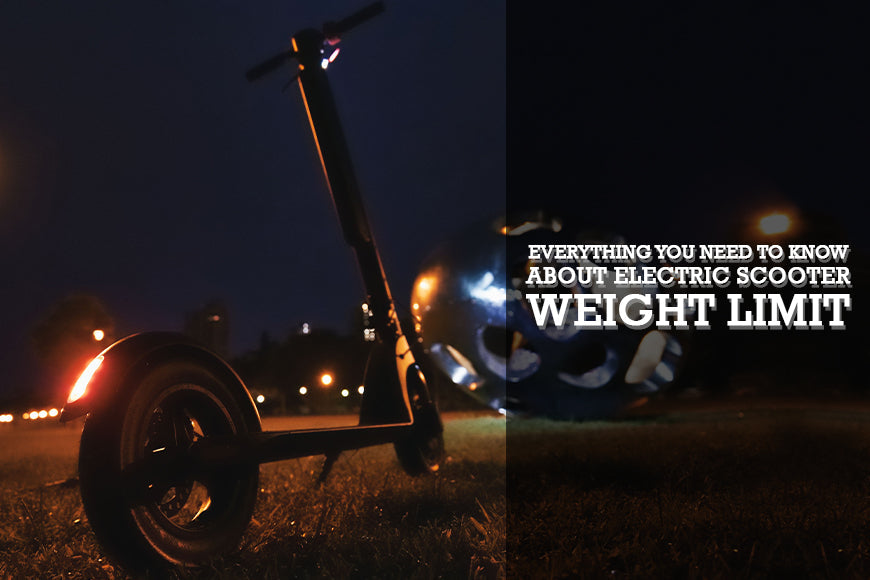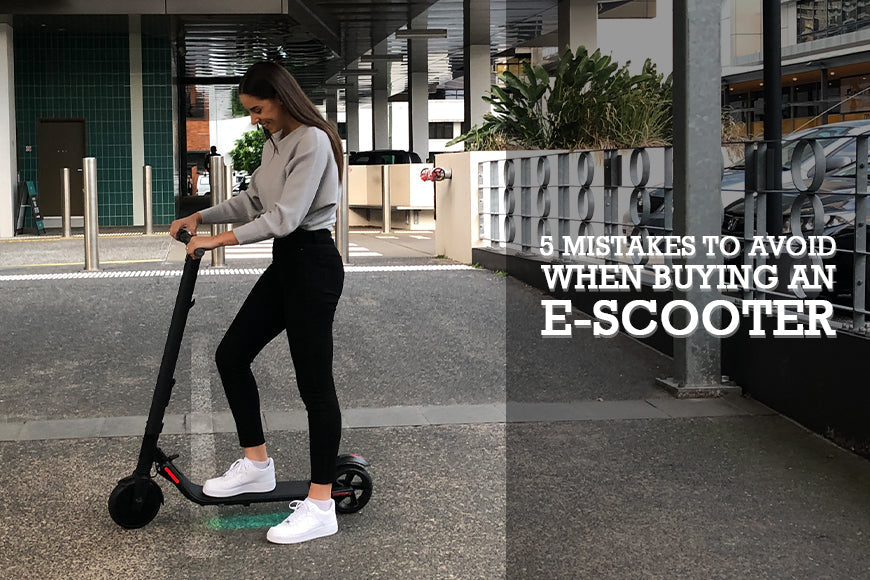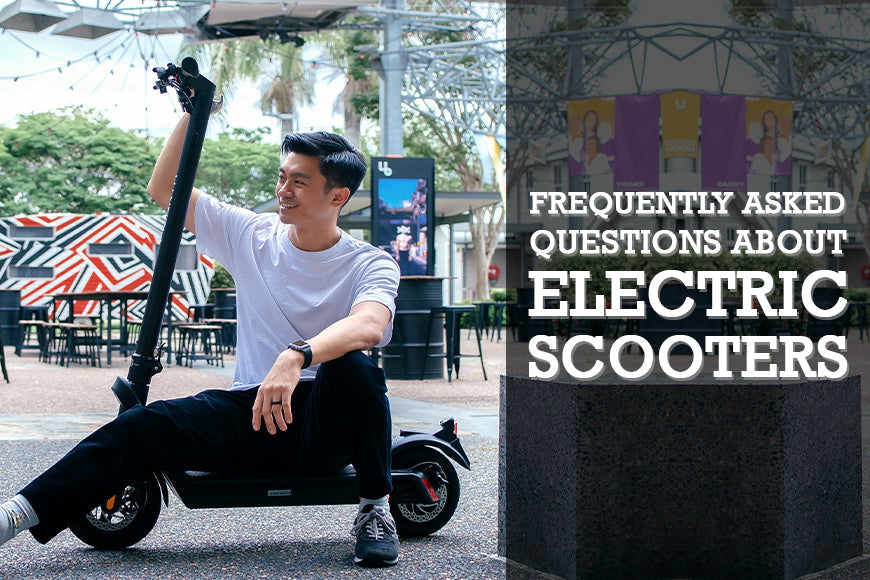
Electric scooters for adults in Australia have become more than just a trend. Today, they provide an efficient and practical means to move around the city. As more commuters realise their benefits, the demand for e-scooters increases. If you are shopping for one, consider several factors before buying one.
Particularly, think about the electric scooter weight limit or load capacity of the e-scooter. Knowing more about the weight limit allows you to know if you have enough load capacity to carry your weight and other items you might need for your trips. Read this electric scooter guide before you make an electric scooter purchase online or at retail stores.
What is an Electric Scooter Weight Limit?
The weight limit or weight capacity of the e-scooters is the maximum load that they can carry. Each electric scooter offers a different weight limit. It often ranges from 100 kg (220 lbs) to 160 kg (352 lbs). Commuter electric scooters like the Mearth RS Series usually provide up to 100 kg of max load. Meanwhile, off-road electric scooters, like the Mearth GTS Series, provide a weight limit of around 150 kg or more.
Why Does Weight Limit Matter?
Considering the weight limit when choosing an electric scooter ensures that your e-scooter can carry your weight, plus other items you might carry. Riders on the heavier side will need to keep an eye on the electric scooter weight limit to ensure that they don’t overload their e-scooter.
Overloading affects your e-scooter’s ability to perform to its full capacity. It may also push your e-scooter to its limits and damage some of its parts. Ultimately, it is unsafe to overload your e-scooter for you and your e-scooter.
How Does Load Capacity Affect Range?
The e-scooter motor, battery, and wheels work together to pull your and your e-scooter weight to move the e-scooter forward. If the rider is heavier or if you overload your e-scooter, these components work twice as hard. As a result, it uses more power, depleting the battery faster and producing a shorter range. Learn more about how weight affects the electric scooter range.
What Happens if You Exceed the Weight Limit on an Electric Scooter?
As mentioned previously, exceeding the weight limit of an e-scooter pushes it to its limits. You may also encounter the following situations:
- The e-scooter will produce a lower top speed.
- It will produce a shorter range.
- It will not have enough power to climb on inclines.
- The brakes will not be as effective. In addition, it will wear out faster and will not last long.
- The tyres will also wear out faster.
- You might break or bend the frame and chassis since it is not designed to withstand heavier weight.
Overall, your e-scooter will incur damage if you don’t follow its weight limit. It is recommended to buy an electric scooter with a high weight limit. These are usually available in heavy-duty electric scooters.
The Pros and Cons of Heavy-duty Electric Scooters
Pros
- Heavy Load Capacity
A heavy-duty electric scooter provides a high load capacity. It makes them a highly-recommended electric scooter for a heavy person. E-scooters with a higher load capacity carry heavier loads easily.
- Large Motor and Battery
Heavy-duty electric scooters also offer a high-performance motor and large battery capacity, allowing riders to ride at high speeds and climb steeper inclines.
- All-terrain Ride
Their high specs and durable features enable them to take on different terrains, from uneven roads to steep hills.
Cons
- Too Heavy
Heavy-duty e-scooters weigh heavier than most e-scooters because of their large motor and battery and durable design. As a result, they are difficult to carry for some people, making them less ideal for everyday commutes.
- Less Portable
Most heavy-duty e-scooters don’t fold and feature a larger design, making them inconvenient to bring inside public transportation or carry around the city.
- Expensive
These kinds of e-scooters cost the most since they use high specs and premium features. Take note of the price if you are considering a heavy-duty e-scooter.
Factors to Consider When Buying a Heavy-duty Electric Scooter
If you prefer a heavy-duty e-scooter to get a high weight limit, also consider the following to get the best one in the market.
1. Large Battery Capacity
Having a large-capacity battery allows you to get more from your e-scooter. Get more power and deliver more range if you choose an e-scooter with large batteries. However, keep in mind that a large battery means a long charging time. Some models take over six hours to fully charge their e-scooter. Nonetheless, consider battery capacity if you need a long-range e-scooter.
2. Powerful Motor
Heavy-duty electric scooters usually have a minimum power of 1000W since it is used for off-roading. The motor power also determines the speed of an e-scooter. So, if you need an e-scooter for riding rough terrains and steep inclines, consider a heavy-duty electric scooter with a high power wattage.
3. Durable Tyres
A heavy-duty or off-road e-scooter should have durable tyres that can take on different road conditions at high speeds. Choose tyres that provide thick material, excellent shock absorption, and good traction. Most heavy-duty e-scooters use durable pneumatic tyres since it provides good shock absorption, and ride quality.
4. Strong Brakes
Finally, choose an e-scooter with strong brakes. Since you will be likely riding at high speeds, it is important to use a braking system with strong stopping power to keep you safe on the road. Disc brakes offer the best type of brakes for their safety and strength.
Check out the other factors to consider when buying an off-road electric scooter.
Hopefully, this electric scooter guide helped you learn more about electric scooter weight limits and why it matters when buying an e-scooter.
Find more electric scooter guides, tips, and news at Mearth’s blogs.




Leave a comment
This site is protected by hCaptcha and the hCaptcha Privacy Policy and Terms of Service apply.